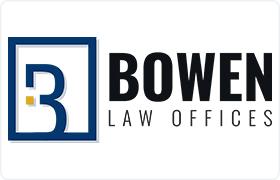 Blue Diamond Child Support Lawyers, Nevada
Blue Diamond Child Support Lawyers, Nevada
Sponsored Law Firm
-
 x
x

Click For More Info:
-
Bowen Law Offices
9960 W. Cheyenne Ave. Suite 250 Las Vegas, NV 89129» view mapDivorce & Family Law Proudly Serving Clark County
Bowen Law Offices brings a wealth of litigation and courtroom trial experience to clients with various family law needs
800-357-1401
Warning! No lawyers found in this specified area.
Lawyers
1-0 of 0 matches



 Jerome Bowen Las Vegas, NV
Jerome Bowen Las Vegas, NV AboutBowen Law Offices
AboutBowen Law Offices Practice AreasExpertise
Practice AreasExpertise